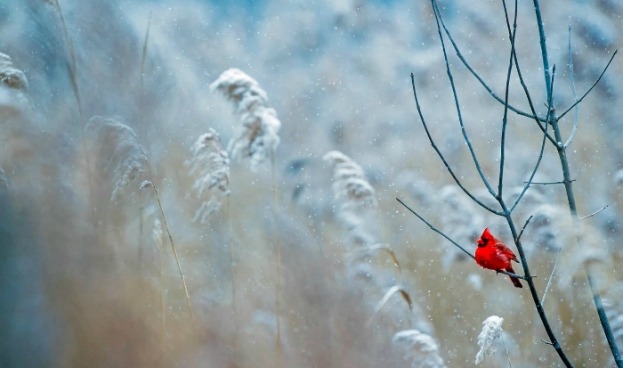On a soft, snowy morning I read a poem by Mary Oliver. And in the afternoon, it came to me, a notice of her death. Too soon! I thought. Too soon to lose a talent of this magnitude. My heart rocked in grief for several minutes. But then I re-read the poem from the morning called "Bazougey" (Dog Songs, 2013), about the death of a beloved dog. It begins,
Where goes he now, that dark little dog
who used to come down the road barking and shining?
He's gone now, from the world of particulars,
the singular, the visible.
So, that deepest sting: sorrow. Still,
is he gone from us entirely, or is he
a part of that other world, everywhere?
I now think of Mary Oliver as in this poem, no longer part of the singular, the visible, the world of particulars, but rather "a part of that other world, everywhere."
Mary Oliver spent her life soaking up the natural world and letting it flow out through her pen in ways that make our moments on this earth more tender, our souls full of seeing. She let it all flow through her—the sorrow and the love from the world of particulars. She was like the tide going out, leaving behind treasures on the shore for us to discover in our quiet meanderings. In this way, she helped us find that secret flow between the world of here and the world of everywhere.
Musing on my own spirituality and Mary Oliver's passing, I wonder: If Mary Oliver is in heaven now, then mustn't she also be in the snowy tree branch outside my window where a fiery red cardinal sits in perfect equanimity? She may not be here, but she is everywhere.
In my theological mind, heaven is God and God is heaven. And God is everywhere! God's deep presence suffuses the soil and the stars, the rivers, the snow-laden trees, the resting cardinal, the smiles of children making snowmen. And so, the poet, too, is in all these places now that she is "part of that other world, everywhere."
I imagine that in death we are embraced by the "everywhere" heart of God in some tender and transformative way. Our departed loved ones from shiny black dogs to mothers and dear poets are part of that magnificent, divine embrace of the world—the everywhere. That must be why we sometimes feel our loved ones now departed in some new way: guiding us or whispering in the rustle of trees. They are in God, and God is in us, and in the trees and grass and song birds. And so our beloved ones are close, still, only in a new way.
But these theological musings are mysterious and invisible. Mary Oliver dealt with the visible, the touchable, the particulars; she gave them room to ask questions about God and the world without certainties, only love. I wish more theologians could leave it at that.
At the end of her poem "Life Story"(A Thousand Mornings, 2012), she speaks of this inevitable "outgo" to the world of everywhere as a natural end in a life story:
No, there's no escaping, nor would I want to escape
this outgo, this foot-loosening, this solution
to gravity and a single shape.
Now I am here, later I will be there.
I will be that small cloud, staring down at the water,
the one that stalls, that lifts its white legs, that
looks like a lamb.
And so we can catch a glimpse of the everywhereness of heaven when we read her poetry. Her poems do taste like heaven, and she is alive in them. But she is more now — she is everywhere — and I see God smiling in that small cloud of hers.

 Mary Oliver and the World of Everywhere
Mary Oliver and the World of Everywhere